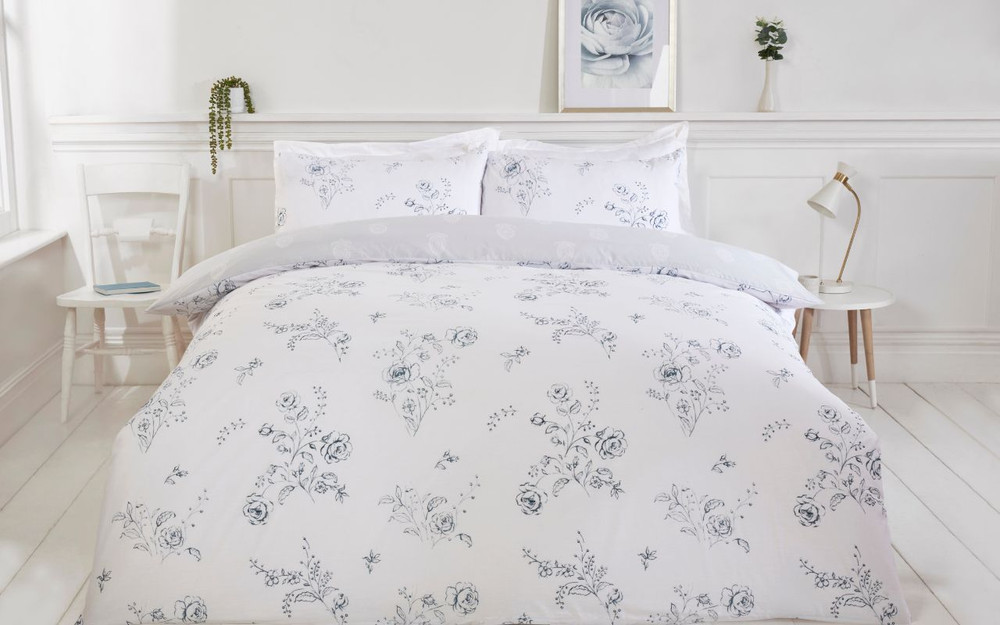How sustainable bedding is transforming UK bedrooms trends, materials & more
Posted by Rapport home on 28th Jul 2025
 Free UK shipping on all orders over £500£30
Free UK shipping on all orders over £500£30
 Wholesale prices available
Wholesale prices available
 Real time stock information
Real time stock information
 24/7 ordering
24/7 ordering
 Product specification downloads
Product specification downloads
Posted by Rapport home on 28th Jul 2025

Sustainable bedding has been gaining momentum across the UK, breathing fresh air into bedrooms everywhere. With more people becoming conscious of their environmental choices, the desire to sleep on products that are good for the planet and our health is growing. Swapping out conventional bedding for eco-friendly options is no longer a niche market move. It's becoming the new standard for many households.
This shift isn't just a fad but a growing lifestyle change. As consumers learn more about how everyday products affect the environment, the push to make better decisions becomes stronger. Now, retailers and manufacturers are taking notice and stepping up with alternatives that are kinder to the planet. These products offer the same comfort and style as traditional bedding but with far less impact on the environment.
There has been a clear increase in demand for sustainable home goods across the UK, and bedding is right at the heart of it. People are actively looking for ways to lower their environmental footprint without giving up the quality or appearance of their living spaces. Bedding is a simple but powerful place to start. After all, we spend a third of our lives in bed.
Trends show this isn't just about doing what’s popular. It’s about people making informed choices that reflect their values. Here’s what’s becoming more common in bedrooms around the country:
These trends point to a growing recognition that comfort and sustainability can go hand in hand. As more people see the benefits, market supply is catching up, making these once-niche products widely accessible and practical for many UK households.
What makes bedding sustainable often comes down to the materials. Not all fabrics are created equal, especially when it comes to environmental impact. True sustainability takes into account how a material is grown, processed, used, and even what happens after you're done with it.
By choosing bedding made from materials like these from Rapport Home, people aren’t just getting a comfy night’s sleep. They’re helping conserve water, lower chemical pollution, and keep waste out of the system.
Sustainable bedding isn’t just delivering benefits for the planet—it’s changing the feel and function of British bedrooms. These textiles hit all the marks: they look great, feel great, and do some good while they’re at it.
From a design point of view, eco-materials tend to work beautifully with today’s interiors. Their natural tones and soft finishes lend themselves to minimalist décor, country-style looks, and modern spaces alike. That gives people more ways to match comfort with visual appeal.
Functionally, materials like bamboo and organic cotton breathe better than many synthetic blends. That helps with temperature control during the night, reducing the chance of waking up too hot or too cold. They're also more likely to be hypoallergenic, which can ease irritation for people with sensitive skin or dust allergies.
On the pricing front, things are changing. Sustainable bedding used to be considered expensive, but that’s beginning to shift. Suppliers like Rapport Home, are encouraging better pricing and wider range. And because these materials are often more durable, they don't need replacing as frequently, which saves money over time.
Rapport home is stepping up and delivering high-quality sustainable bedding. What sets this brand apart isn't just what they sell, but how they operate:
This company is balancing style, accessibility, and responsibility. That balance makes it easier for consumers to make choices they can feel confident in—not just once, but over the long haul.
Switching to sustainable bedding doesn’t have to mean redoing your entire bedroom in one go. A more gradual shift can be just as effective and help ease the process.
Here are some easy steps to take:
Online and offline retailers now carry more eco-conscious collections than ever before. Many sites have sorting filters for sustainable picks, and local homeware shops may offer curated lines specifically focused on ethical manufacturing and organic fabrics.
Small swaps add up. Even replacing one piece at a time can cut down your environmental impact and create a healthier space to rest.
The shift toward sustainable bedding in the UK is about more than new linens. It's about finding ways to live better—in small, meaningful ways that support a healthier environment and a more pleasant home.
These products offer benefits that go beyond appearances. They promote better sleep, fewer allergens, less waste, and a more natural look and feel. Whether you’re easing into eco-friendly habits or doubling down on greener living, your bedding is a smart place to begin.
Once you make the switch and feel the difference—whether that’s in comfort, air quality, or peace of mind—it becomes clear that sustainable bedding isn’t just another option. It’s a better one.
To start creating a healthier, more thoughtful home, explore how Rapport Home supports the shift towards conscious choices through their focus on quality, comfort, and sustainability. Discover more about the benefits and options available for sustainable bedding in the UK and find the pieces that suit your space and values.